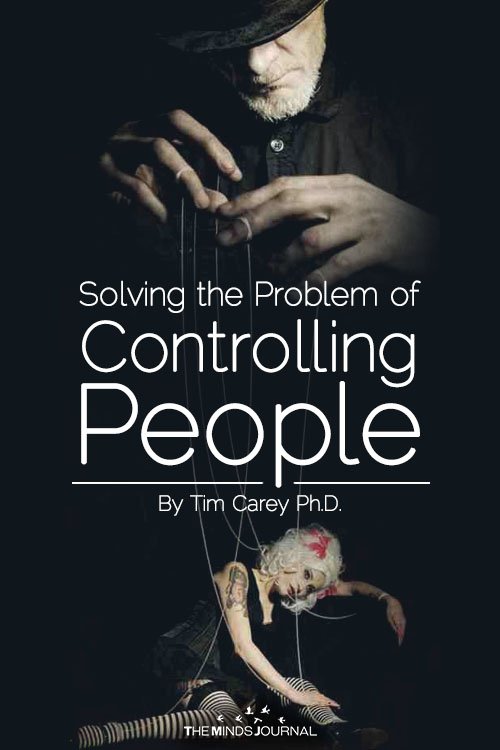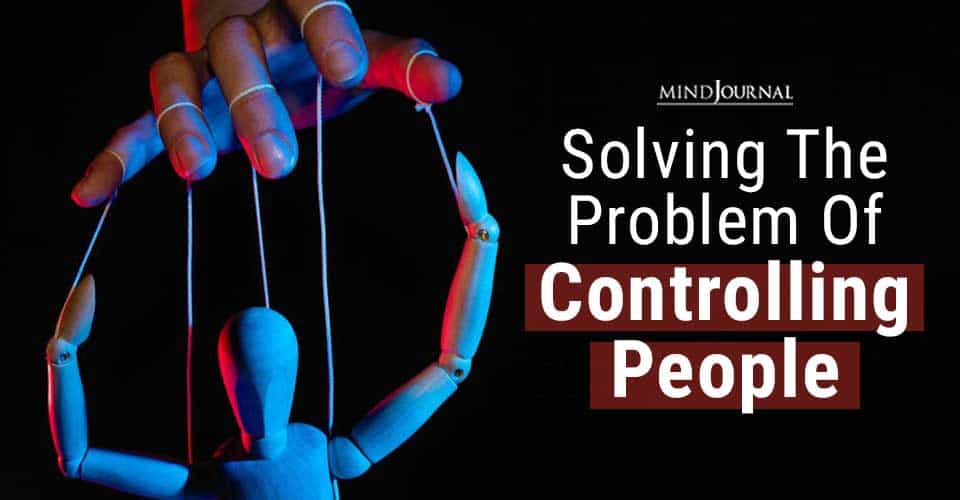Are there controlling people in your life who like to boss you around? Perhaps it’s your manager or your partner or your son or daughter. Maybe a friend, a sibling, or a parent. Whoever you are, it’s likely to be the case that, from time to time, you’re irritated by other people telling you what to do.
It’s also just as likely, however, that being told what to do by others isn’t always annoying. If while eating dinner, you hear, “Would you pass the salt please, honey?” you’ll probably reach out your arm and move the salt in the desired direction without a second thought.
Why are some situations troublesome in that controlling way and others are not? What is the irksome aspect of being controlled by other people?
Imagine how great life would be if you could prevent this botheration from occurring or eliminate it swiftly when it did occur.
Before any problem can be solved, it’s important to understand what the problem of controlling people is. So, what’s the problem with people telling you what to do? And, more fundamentally, what does it mean to say that one person is controlling another person?
If we deal with the second question first, the first question might be easier to answer. We could probably agree that being controlled by another person is the situation that occurs when you do things according to another person’s instruction or request that you wouldn’t have done in the absence of the other person’s call. This definition, however, immediately raises a problem.
Related: 4 Hidden Ways a Controlling Personality Undermines A Relationship
According to this definition, you are being just as controlled when you absentmindedly pass the salt as you are when your boss “makes” you stay back late to finish a report.
The problem is that one situation feels like you’re being controlled, but the other doesn’t. Nevertheless, in both situations, you only acted a certain way because another person requested that you do so.
So, why do the two situations seem so different?
The distinction is crucial and gets to the heart of the problem of controlling people. With the “pass the salt” situation, you want to pass the salt, because you want to be kind and helpful to your partner, you want a sense of closeness in your relationship, and so on.
With the “working late” scenario, however, you don’t want to stay back late. You want to be at home having a family dinner or just taking it easy with a glass of wine or watching your favorite TV show.
How does it happen, then, that you’ve ended up somewhere you don’t want to be? The simplest explanation, unless you’re chained to your desk, is that as much as you don’t want to be at work, you also do want to be at work.
Related: 6 Signs Your Partner Isn’t Infatuated or in Love But is Obsessed And Emotionally Abusive
You’re staying late because your boss told you to, but that’s only half the story. The other half of the story is that you’re staying late because you want this job. You need to keep this job to pay the bills and put food on the table. You also think you might have a chance at a promotion in the next couple of months, so you want your boss to think well of you.
If you had as much money as you needed and weren’t concerned about the opinion your boss had of you, then it would be much less likely that you would conform to your boss’s demands.
Suppose that the next time you pop into the corner store to buy some milk on the way home, the guy behind the counter says, “Pick up that broom and sweep out the store before I sell you the milk.” Can you see yourself sweeping out the store? Maybe not.
Why? Well, you probably don’t care what the guy behind the counter thinks of you, and there are lots of other places to buy milk.
Three situations can arise, then, when another person tells you what to do:
1. You don’t want to do it, and you don’t do it (sweeping out the store).
2. You do want to do it, and you do it (passing the salt).
3. You both don’t want to do it and do want to do it at the same time (staying late at work).
It’s the third situation that is the most problematic. The trouble with the third situation is that it puts you in conflict with yourself.
There has certainly been a directive from another person, but it’s your goal to maintain some kind of relationship with the deliverer of the directive, along with your goal to do something different, that has engaged you in your own private war.
So, controlling people (which all of us can be, by the way) are only problematic when we become conflicted about both wanting and not wanting to do what they have told us to do.
Related: 9 Types of Toxic People That Will Drain Your Energy: You Must Avoid
The good news is that because the problem is our own internal conflict, we have a chance to do something about it.
We’ll probably never be able to stop other people telling us what to do, but we do have the ability to think about which goals are important to us at any point in time.
So, staying late at work could be seen as an exercise in improving one’s chance at promotion. Rather than feeling like your goal of “taking it easy with a glass of wine” is being stymied, you could see yourself as pursuing your promotion goal instead.
It does require some flexible thinking, as well as practice, to be able to step back and find the more important goal, but it’s a surefire way of minimizing the impact of those (other) controlling people.
The idea for this post came out of a conversation with a friend and colleague, Rick Marken. If you like these ideas, Rick and I have written a book about them called Controlling People.
Written by Tim Carey Ph.D.
Originally appeared on Psychology Today
Reprinted with permission from the author











Leave a Reply